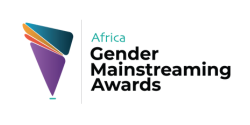Women are severely under-represented in decision making processes across the continent including South Africa and internationally. Education has been identified as the major obstacle to women’s access to leadership, and cost as the key barrier to girls’ education.
Poverty and familial obligations end many girls’ hope for education or the opportunity to fulfill her dreams.
This award recognises and acknowledges organisations that have strategies in place to allow for future education of young women or have implemented initiatives with the objective of addressing social inequities by educating and empowering young women leaders from diverse economic backgrounds. These initiatives have positively impacted the lives of young women who will become the next generation of women leaders!
Individual
Nominate an Individual for a Gender Mainstreaming Awards category.
Company
Nominate a company for a Gender Mainstreaming Awards category.
| Aspects Adjudicated Upon | Weighting | What Information Needs to be Furnished | Criteria being applied in measurement |
| Design and Innovation | 30 | Detailed Overview of the Programme | Design, Innovation, detail and planning of the programme |
| Management | 10 | How the programme is/was managed | People involved / Frequency of meetings / Monitoring of implementation / Systems Utilised |
| Communication | 10 | How the programme was communicated | To Whom / Medium / Frequency / Format |
| Return on Investment / Business (Economic) Impact | 40 | Impact of the programme | Contribution to sustainability / profitability/ROI |
| Gender Targets (Broad Base) | 10 | Who the beneficiaries were | Number of women/percentage of staff/targets achieved |
